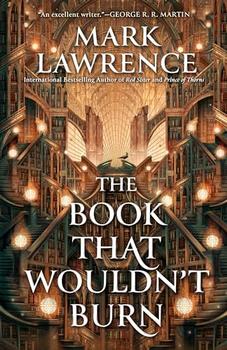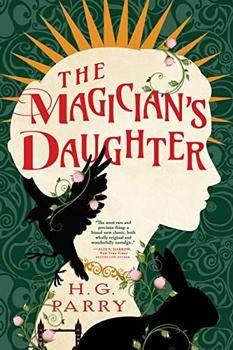Summary | Excerpt | Reading Guide | Reviews | Beyond the book | Read-Alikes | Genres & Themes | Author Bio

Mr. Penumbra's 24-Hour Bookstore is a novel whose own history uncannily echoes its themes. The original genesis of Sloan's debut novel was as a self-published ebook short story, which then, following its overwhelming success in that form, found its way to a print publisher and a new life as a traditionally published, full-length novel. Likewise, the plot and themes of Sloan's novel continuously - and vigorously - cross the boundaries between old and new technologies, between traditional knowledge and new ways of thinking, between a possibly irrelevant past and a still undefined future.
The central figure in this drama is Clay Jannon, a twenty-something graphic designer who has been the victim, on more than one occasion, of the Great Recession. To make ends meet, he finds himself working as the night clerk at the eponymous bookstore, which is really two bookstores in one. The front of the store houses more conventional titles like the Steve Jobs biography or the latest Murakami novel. In the back are the books Clay dubs the "Waybacklist", books so ancient and arcane that only a handful of people can even read them. Those people often come into the store in the wee hours, looks of desperation in their eyes, eager to borrow the next book in their self-defined series, often acting as if their very lives depend on pursuing the answers to a mysterious puzzle.
Which, it turns out, just might be true. The mystery at the heart of Mr. Penumbra's 24-Hour Bookstore is complicated and multilayered, so I don't want to give too much away here. Suffice it to say that Clay's investigation of the "Waybacklist" takes him from the headquarters of Google to a subterranean library in New York City, from fifteenth-century technologies to the most sophisticated computing networks available in the twenty-first century. Along the way Clay enlists the help of his oldest friend, his artistic roommate, a fetching Googler genius, his favorite childhood author, and, of course, Mr. Penumbra himself.
As you can probably tell, Sloan effectively combines real-world technologies, settings, and situations with unabashed fantasy - trying to discern the difference (and in many cases deciding it doesn't really matter) is a great deal of the fun. Ultimately a very satisfying (and surprisingly old-fashioned) adventure story, Sloan's debut is also a reminder to readers about the varied pleasures of reading, of discovery, of investigation, and of books themselves.
Ultimately, Sloan's novel offers the most profound respect for books and reading and learning in all its forms. As Clay notes near the novel's end, "We have new capabilities now - strange powers we're still getting used to." The novel both validates those powers and also values the centuries of old knowledge that came before. Whether readers are of the sort drawn to the smell of paper and the shape of typography or of the sort compelled by innovation, invention, and the thrill of the hunt, they can definitely find common ground in this novel that embodies - from the beginning to the end - the best of both worlds.
![]() This review was originally published in The BookBrowse Review in November 2012, and has been updated for the
October 2013 edition.
Click here to go to this issue.
This review was originally published in The BookBrowse Review in November 2012, and has been updated for the
October 2013 edition.
Click here to go to this issue.

If you liked Mr. Penumbra's 24-Hour Bookstore, try these:

by Mark Lawrence
Published 2024
Two strangers find themselves connected by a vast and mysterious library containing many wonders and still more secrets, in this powerfully moving first book in a new series from the international bestselling author of Red Sister and Prince of Thorns.

by H.G. Parry
Published 2023
In the early 1900s, a young woman is caught between two worlds in H. G. Parry's spellbinding tale of miracles, magic, and the adventure of a lifetime.
Your guide toexceptional books
BookBrowse seeks out and recommends the best in contemporary fiction and nonfiction—books that not only engage and entertain but also deepen our understanding of ourselves and the world around us.